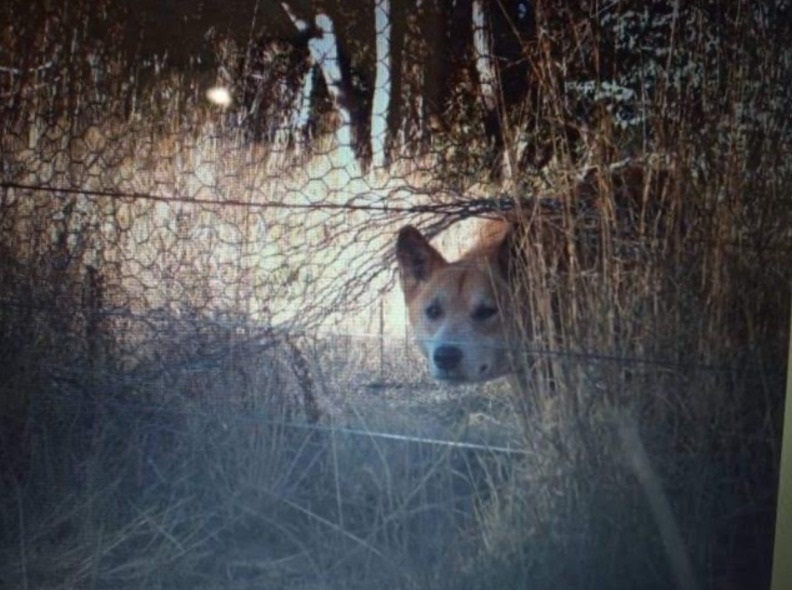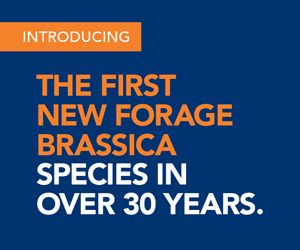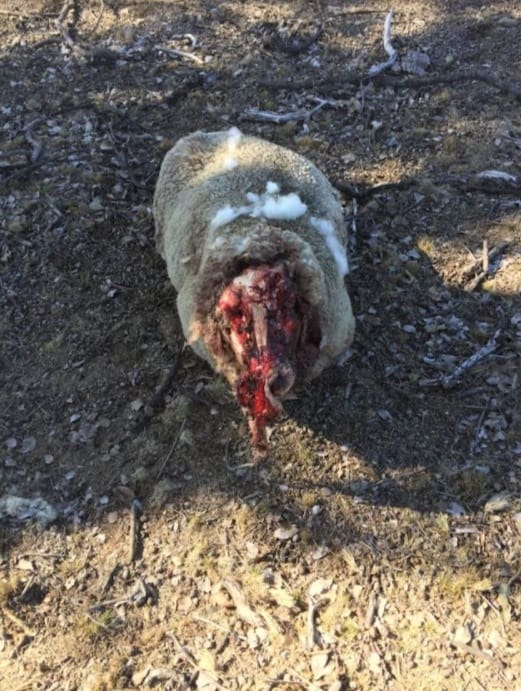
A wild dog captured on film in northern NSW. Image – Dave Worsley.
NORTHERN New South Wales sheep producers are losing livestock to unchecked wild dog attacks as the Queensland-NSW COVID-19 border restrictions hamper trapper movements.
Some producers were relieved this week when at least one trapper based at Wallangarra in Queensland resumed trapping in the Tenterfield area following an escalation in stock losses over recent weeks.
However, another Stanthorpe-based trapper has elected to stay at home after being told by Queensland border police he would be sent to Sydney and then Brisbane for quarantining if he tried to cross the border to return home after working his NSW trap lines.
The movement of Queensland-based dog trappers into the area has been restricted by uncertainty around re-entry requirements such as vaccination, quarantining and an exemption from the Queensland Chief Health Officer.
Workers applying for an exemption to work in Queensland must be vaccinated at least once and demonstrate why the services are needed and cannot be obtained in Queensland, why they must be provided without delay and why the worker’s physical presence is needed. The employer must also have a quarantine management plan that complies with the form approved by the Chief Health Officer (DOCX).
The issue is that trappers, like other agricultural workers, including shearers and wool handlers, are not currently considered by Queensland to be part of an essential industry.
QLD-based trapper braves border restrictions
Tenterfield Wild Dog Association chairman Allan Schroder said authorities today allowed Wallangarra-based trapper Kevin ‘Slim’ Austin to cross the border and resume trapping.
But Mr Schroder believed a letter from the association supporting Mr Austin as an essential worker and the closest available trapper would allow him to cross the border and re-enter Queensland daily. Mr Austin has had one COVID-19 vaccination.
“They told him he would be right (to re-enter Queensland), so he has gone today anyhow.”
 Mr Schroder said the association was initially told Mr Austin would be allowed to enter NSW but there was no guarantee he would be able to re-enter Queensland, and if he did, he would probably have to quarantine for two weeks.
Mr Schroder said the association was initially told Mr Austin would be allowed to enter NSW but there was no guarantee he would be able to re-enter Queensland, and if he did, he would probably have to quarantine for two weeks.
“The rules seem to be a bit up in the air, the rules seem to be different with every employee.
“We need him when he comes, to come every day to check his traps, animal cruelty comes into it.”
Mr Schroder said there had not been any call for trapping until 2-3 weeks ago when dog activity increased south of Tenterfield. He said a property south of Tenterfield lost 25 lambs to dogs and a neighbour also had some losses.
“The sooner you can get them (the trapper) there and get the dog caught, the kinder it is to everybody, the person, the sheep … it costs a lot of money if you value those lambs at $200 a head, and they could be worth more, that’s $5000 worth of lambs he has lost in a couple of weeks.”
He believed authorities needed to show more consideration for the animal welfare issues involved in wild dog attacks and control.
“They are not going to be a risk to anyone; they are only going to do a job and going home.”
Trapper told he would be sent to Sydney and Brisbane…
Stanthorpe-based trapper Jamie Atkins said the border restrictions have stopped his northern NSW trapping work for the past two weeks.
“They reckon my work is essential for New South Wales, but it’s not essential for Queensland.
“A traffic cop from Toowomba said I could go in there (to NSW) no worries, but if I was to come back I would have to go to Sydney, fly back into Brisbane and then back here and isolate,” he said.
“Which I thought was a bit ridiculous, because you are going into a hotspot from a non-hotspot to potentially make a new hotspot.”
Mr Atkins is waiting for vaccine to be available for his first COVID-19 vaccination.
“But even with the jab that copper said I wouldn’t be able to cross because he said it’s not essential for Queensland, which I just thought was a joke.
“There is no guarantee that the person you speak to on the day is going to let you through.”
Several NSW landowners with wild dog problems have called him, including one just over the border who is receiving health treatment in Sydney and relying on Mr Atkins for dog control.
“He’s getting predation on sheep and alpacas.”
He is meant to be working in the Inverell and Ashford areas, but was stopped quickly when the border closed.
“The problem I had was that I had active traps in the ground, which I legally have to check every 24 hours to be humane, and I had to get landowners to pull the traps up for me because I couldn’t get back to check them.”
Mr Atkins works under contract for NSW’s Local Land Services and is investigating staying in NSW to work during the lockdown, and employing someone to look after his own livestock, but believes travel restrictions could also complicate that.
“If I’m not working, I’m not getting paid.
“I haven’t any income now for a few weeks, so it’s not ideal and it’s not looking any better for the future.”
Dogs captured on film but not in traps …

A sheep defaced in a recent wild dog attack as border restrictions hamper trappers. Image – Dave Worsley.
North-east NSW wild dog control co-ordinator Dave Worsley said recent wild dog attacks have been a problem in the Tenterfield area with the absence of Mr Atkins.
“We’ve got sheep being killed in this area around Inverell and no access to a trapper.
“We had a dog attack on Friday which in forty years is one of the most gruesome things I’ve ever seen, with sheep with their faces literally ripped clean off and still alive,” he said.
“Personally I’ve just put six wild dog sightings on FeralScan as a landholder 40 kilometres north of Inverell neat Pindari Dam.”
He said hundreds of thousands of hectares are being affected by the absence of trappers and other areas along the QLD-NSW border could have similar problems.
“We’ve got the Tenterfield area, and he should be working around that Ashford, Wallangra, Coolatai area which was where we were trying to get him into.”
Mr Worsley said he capturing images of wild dogs but without a trapper landholders are unable to integrate their pest management to control them.
“When you’ve got a dog killing you need a trapper on the job pretty much straight away and that is not a reality.”
Mr Worsley said one dog that has been killing sheep between Inverell and Bundarra for six weeks has been captured on camera “but we can’t get a trapper there, because he can’t get across the border.”
Mr Worsley said COVID-19 restrictions must be observed, but trappers are able do their work without coming into contact with people minimising their potential for COVID-19 infection or spreading.
“It’s absolutely a solitary occupation.
“I believe essential work is essential work and the risk factors with what he is doing are so low because he’s not going to an auditorium and playing music or the pub.”
Last year the two trappers trapped more than 200 wild dogs in the Tenterfield Shire in the Northern Tablelands region of NSW.

HAVE YOUR SAY